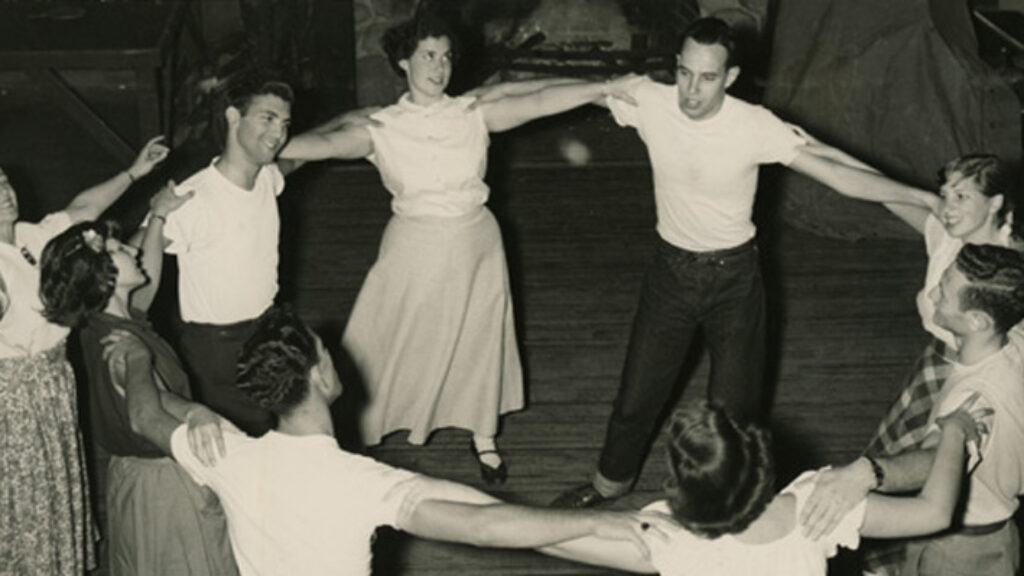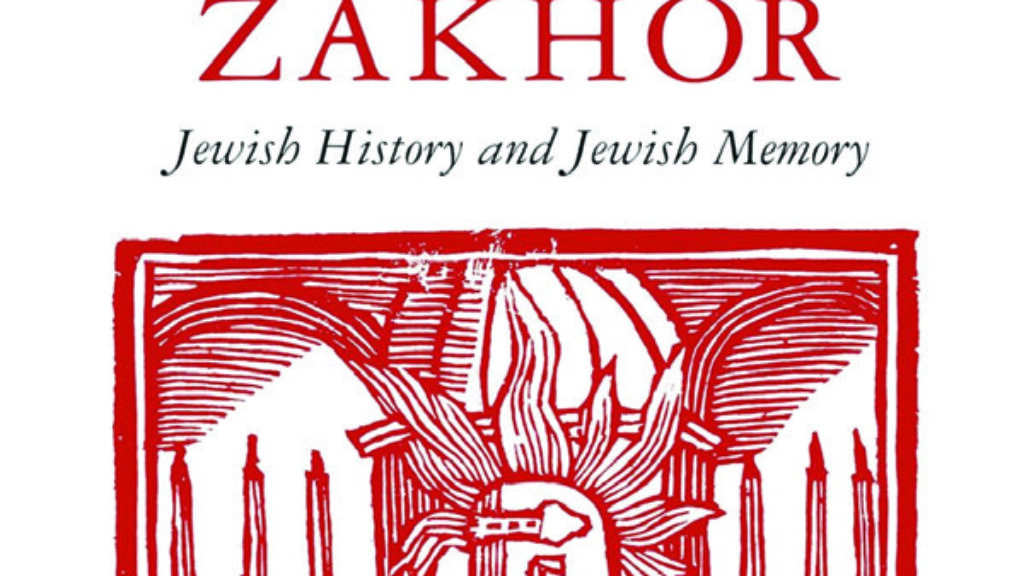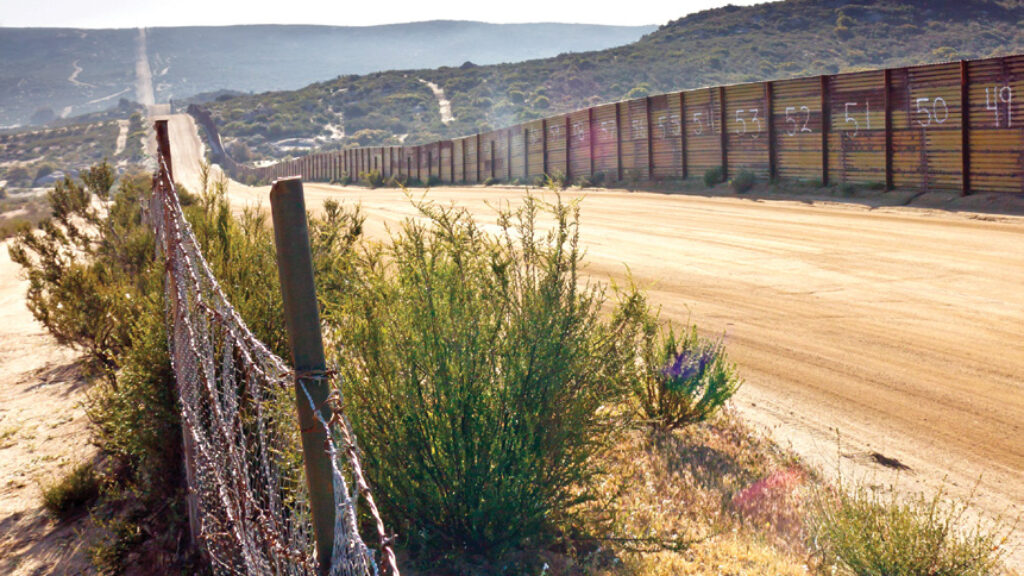A Jewish Perspective of Longing
BY SAMUEL FIELDS
Since the calamity of October 7, there has been Jewish achdut, unity, around the world. Such achdut requires respect for each other and keeping our eyes on a shared goal. The need for Jewish unity has been reinforced by the fact that in so many environments, such as college campuses, and on popular apps like TikTok, the word “Zionist” has been deemed a slur. It has become dangerous to be a Zionist.
But while Zionism is often viewed as a modern or colonialist movement, the concept did not start when the state of Israel was founded, or even in the decades preceding that, as commonly believed. Zionism began the moment God declared to Abraham that “I am Hashem who brought you out from Ur of the Chaldeans to assign this land to you as a possession” (Genesis 15:7). In biblical times the Land of Israel was promised to us after avenging our enemies. Unfortunately, this biblical precedent is not respected or relevant to a lot of people. The sharp rise in anti-Zionist sentiment can be blamed on many things, and ignorance of Jewish history is one of them.
All the while, we Jews are in pain as we anxiously await the return of our hostages, our brothers and sisters, especially as we have received heart-wrenching news about the fate of some hostages held in terrorist captivity, like that of Hersh Goldberg-Polin z”l.
October 7 has also had far-reaching effects on my small town public high school, where I’ve been called brainwashed simply because I am a Jew, and where I have gotten in trouble for starting a peaceful conversation with a Muslim classmate. It’s not just in my school that such events have taken place. When trying to have a leisurely time at a sporting event in the Netherlands, Israelis were violently attacked and berated. Additionally, Rabbi Zvi Kogan z”l, a twenty eight-year-old Chabad emissary in the United Arab Emirates, was abducted and murdered simply for being a Jew.
Our world is shaking and, if nothing is done to counter this anti-Semitism, it’s on course to shatter like a glass vase. Beyond these physical threats, the overwhelming hate expressed on social media is similarly nerve-wracking. As a person living in a world of many opinions, I find it crucial to understand every side of an issue. That brings me to news sources like the New York Times, CNN, and NPR. When more left-leaning news sources report on Israel, I can’t help but look at the comment section to see what the world has to say. Often, I see GIFs of Israel Defense Forces (IDF) soldiers in diapers, Zionism being called the cause of an “ethnic cleansing,” and other dehumanizing remarks.
When faced with so much trauma, it can lead us to feel hopeless. I want to assert that maybe the best way to move forward is to sit in these depressive thoughts. Even though it can feel counterintuitive, it is actually a beneficial, psychologically proven way to cope with negative emotions. According to Oxford Languages, catharsis is “the process of releasing, and thereby providing relief from, strong or repressed emotions.” We must actively process the emotion in order to properly deal with it.
This past Simchat Torah, it was a common refrain in the Jewish world that we would “Dance Again” or “Dance for Them,” in reference to the Nova Festival Massacre and the IDF soldiers in combat who would not be able to celebrate the holiday to its fullest potential. Watching the congregants dance at the shul I attended was hard. How could we be so happy when there was so much negativity surrounding us? There is a very well-known saying of Rabbi Nachman of Breslov that it is a mitzvah to always be happy, but I struggle to see the truth in that. God didn’t yell at Moshe to get up when he fell on his face in front of Korach’s band of rebels; Abraham experienced pain after having to separate from his nephew Lot.
It is a very upsetting notion, but maybe instead of simply putting a smile on our face, we can go on in a different way. We can embrace the feeling of longing. We can long for a time when we can live in our Land of Israel or when we can express ourselves, loudly, as Jews without being afraid. It is apparent in the Talmud that there were some great Jewish thinkers that underwent a similar struggle.
These feelings of extreme sadness are very present throughout our liturgy, particularly in reference to the destruction of our Holy Temples in Jerusalem. Our nation has encountered many struggles and calamities, but the Talmud highlights an interesting point. Tractate Chagigah of the Babylonian Talmud deals with the procedures of sacrifices to the Holy Temples on the Three Festivals: Passover, Shavuot, and Sukkot. Because this volume was compiled well after the destruction of the Second Temple, there are many feelings of sorrow expressed in its pages. The Babylonian Talmud Chagigah 4b states, responding to the verse, “And you shall sacrifice peace-offerings, and shall eat there” (Isaiah 1:12) that “Rav Huna, when he came to the verse, he wept.” Just the thought of being commanded to bring sacrifices, but being unable to fulfill it, brought sadness to a scholar born several centuries after the last sacrifice was offered.
The Gemara goes on to list other Rabbis who wept when coming across other parts of the Tanakh pertaining to sacrifices, and the procedures that could no longer be fulfilled. Another verse that made a different Rav cry was, “Let him put his mouth in the dust, perhaps there may be hope” (Eicha 3:29). Of course, the Tractate goes on to other topics, but it is crucial to address the utter sadness of this quote. In the ground one will find nothing. It is alluding to a plea to be killed. That is the rabbinic explanation here. Unlike many other discussions in the Talmud, there was no argument here: sadness was the only way to go about reflecting on the destruction of the Second Temple.
How do we apply this lesson to our lives? When faced with so much hopelessness, it seems that all we can do is put our faces to the ground. That is, of course, what Moshe did at many points on his journey as leader of B’nei Yisrael, the Children of Israel. We should be reflecting instead of constantly looking for inspiration.
It can be very hard for some to feel their emotions, especially in this day and age where everyone is constantly posting about being happy and sharing only the highlights of their life. I suggest that every now and then, we wallow in our sadness as a means to reflect on what was. But there is also no telling of what can be. John Winthrop, the first governor of the Massachusetts Bay Colony, is famous for imagining his future colony as a “city on a hill.” At this moment that is exactly what we need.Of course to us Jews, that city on the hill is Jerusalem. I can not come up with any other city in the world that gives me as much solace and comfort as Jerusalem—Zion. What I wish for all Am Yisrael is to have a constant longing for our land in theory, practice, and especially in prayer. All we can do is hope; that is what our national anthem “Hatikvah” begs of us to do. The moment we lay down our hands and call it quits is when we let our enemies win. Each and every one of us should find something to channel our sadder emotions into, and soon we will find that there is a lot of light waiting to guide us.
Suggested Reading

Vast as the Stars and Sand
BY ELISHAMA SCHWARTZ Some of us lounge with verdant backyards and homey porchesOthers are squeezed by neighboring skyscrapers and smokeButEither waysometime in winter,I’ll be comforted by the beam of the…

What It Means To Be Jewish
If the future of American Jewry is to be composed of, as Milton Himmelfarb put it, "fewer but better Jews", then what does it mean today to be Jewish? And what makes a "better Jew"?

Zakhor, or Where Is Our History?
BY MAYA TRATT For all the talk about how Jews are the “People of the Book,” there is a chapter that seems conspicuously missing—where is Jewish history? A ubiquitous facet…

The Protection of Nationhood
BY MEIRA LUTCH Operation Lone Star—one of the most contentious immigration-control mechanisms in modern American history—was launched by Texas Governor Greg Abbott in March 2021. The operation was designed to…